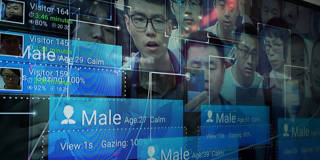While digital technologies once promised a new era of emancipatory politics and socio-economic inclusion, things have not turned out quite as planned. Governments and a few powerful tech firms, operating on the false pretense that data is a resource just like oil and gold, have instead built an unprecedented new regime of social control.
NEW YORK – The revolution in information technology since the 1980s has transformed modern life, reducing the costs of collecting, storing, and sharing data, and creating an entirely new medium of communication and exchange: the Internet. By setting the stage for new forms of social, political, and economic engagement, the IT revolution, we were told, would strengthen individual autonomy and social inclusion.

NEW YORK – The revolution in information technology since the 1980s has transformed modern life, reducing the costs of collecting, storing, and sharing data, and creating an entirely new medium of communication and exchange: the Internet. By setting the stage for new forms of social, political, and economic engagement, the IT revolution, we were told, would strengthen individual autonomy and social inclusion.